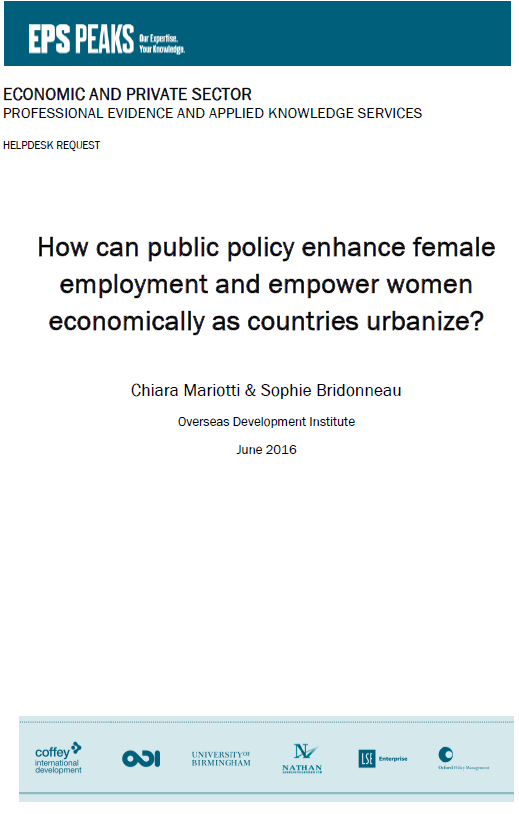Economic development is characterised by two interlinked processes: urbanisation and greater women’s participation in the workforce. As a result of the reallocation of economic activities from agriculture to manufacturing and services, and the alteration of gender relations, more workers move to cities where economic activities are concentrated, and more women enter the workforce.
In the last decades, increase in female labour force participation has been larger in poor countries which are rapidly urbanising. Despite regional differences in their incidence, urbanisation and labour force participation can be powerful drivers of women economic empowerment.
This Helpdesk Review, carried out under the DFID Economics and Private Sector Professional Evidence and Applied Knowledge Services (EPS-PEAKS) framework, seeks to understand how public policy can enhance female employment and empower women economically as countries urbanize.
The focus of this paper is on poor urban women in developing countries, and reviews the empowering and disempowering effects of urbanisation on the four main areas of work performed by women in cities: paid wage work, paid care work, unpaid care work and self-employment. This paper also analyses the interventions which have been implemented to support the different types of female urban livelihoods, from wage employment to domestic work.
Click here to download the paper English | Chinese
Authors : Chiara Mariotti & Sophie Bridonneau

